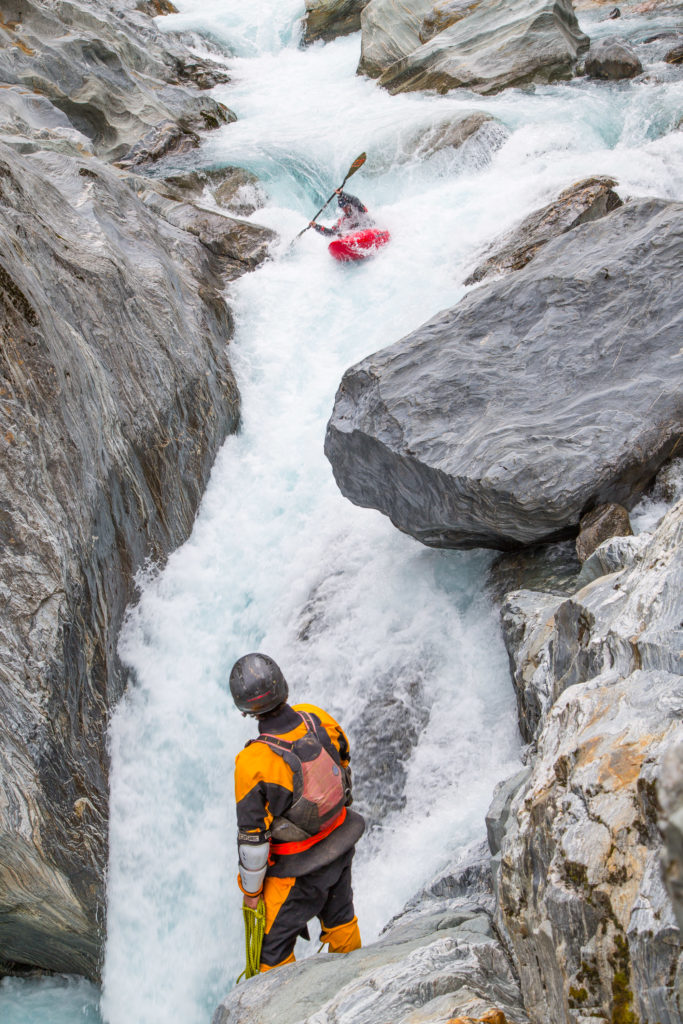Grandmothers move to protect 38 West Coast rivers
Can grandmothers and tikanga Māori come to the rescue of 38 pristine South Island rivers?

As report after report paints a bleak future for our fresh waterways, a group of grandmothers is trying to save 38 West Coast rivers.
The Waitaha Executive Grandmothers’ Council (WEGC) is using a Resource Management Act clause related to tikanga Māori to apply for a water conservation order on the rivers.
The bulk application seeks to restrict permission for any new commercial activity on waterways from Punakaiki to Haast.
The WEGC has been helping families since 1999.
Council spokesperson Jane Ruka (Waitaha, Ngati Pakau, Te Uriroroi, Ngapuhi) said the threat to the rivers was concerning.
“Normally we’re really just interested in looking after the social issues around us, not just for Māori, but Pākehā too. Just children really, and the increasing needs they have.
“We suddenly sat up and realised the only pristine rivers we have in New Zealand are going to be attacked by every person looking for a quick way to make money. None of the public in New Zealand benefit from this sort of behaviour.”
The catalyst for the water conservation order application was Westpower’s application to dam the Waitaha River, reducing its flow from 23 cubic metres a second to 3.5 cubic metres a second.
At the same time, the WEGC became aware of plans to export 800 million litres of water a month from Mount Aspiring.
Both projects involve Department of Conservation land, or land the department has stewardship over.
“The reason we submit on these issues of waterways is because we believe the environment is being destroyed by the manner in which supposed stewardship by the conservation department is being conducted.”
The WEGC members are spread throughout New Zealand, but claim whakapapa from the waka Uruao.
“We have got history the length and breadth of New Zealand and historical korero to prove it. We can make submissions touching areas we have history to,” Ruka said.
The WEGC made a submission against the dam proposal, however, their water conservation application sees them going on the offensive, attempting to stymie new commercial activities rather than submit opposition to each one.
Water conservation orders aim to preserve bodies of water in their natural state. Currently 15 New Zealand rivers are protected by conservation orders.
The application, unusual as it covers 38 rivers, uses the Māori concept of ki uta ki tai which acknowledges connections between the atmosphere, surface water, groundwater, land use, water quality and quantity, on the journey from mountains to sea, and sees rivers as interconnected.
“Tikanga Māori takes a holistic view of the world and our natural resources. Thus the WEGC see these water systems as part of one combined water body, namely the westward watershed of the Southern Alps,” their application says.
The bulk of the application rests on a clause in the Resource Management Act covering water conservation orders in section 199 which states: “The protection of characteristics which any water body has or contributes to, and which are considered to be of outstanding significance in accordance with tikanga Māori.”
Tikanga Māori translates can be interpreted as the right way of doing things.
The WEGC application speaks of kaitiakitanga, mauri, manaakitanga and mana, but when discussing the individual rivers, the main reason given for their significance is the presence of wāhi tapu (sacred sites).
The West Coast was the site of Māori pounamu wars, according to the application.
“Māori custom during this tapu time of loss and grief and warfare would mean that the tūpāpaku (deceased) would have been dealt with according to tikanga.”
Ruka said the wāhi tapu sites varied in size, some large and others small areas of family wāhi tapu.
The WEGC application has been made against a backdrop of fresh water scrutiny, legislative change, and controversy.
Involvement in the government-led Land and Water Forum was abandoned by Federated Mountain Clubs, Fish and Game, and Forest and Bird.
The forum aims to provide direction and advice to government and brings together central and local government, industry, electricity generators, environmental and recreational groups, iwi and scientists.
The move came after the government proposed freshwater standards in their clean water document which altered e-coli levels previously considered safe for wading, to be safe for swimming.
“We could see no purpose in remaining in a group that was all talk and whose korero wasn’t listened to,” said Federated Mountain Club’s fresh water spokesperson Jan Finlayson about the Land and Water Forum.
“I think they have shrunk the scientific base as far as possible and what remains unable to be ignored, they have manipulated.”
Federated Mountain Clubs is choosing to support initiatives such as the application of the Waitaha grandmothers.
Along with submitting material to support the application, they helped fund the $1022 application fee.
“We see this as a good way ahead — to band together with other groups and try different ways because the usual paths we’ve gone down to have influence don’t work in perpetuity. We need to be thinking strategically.”
Finlayson said the WEGC-led application was inspiring.
“Everybody has been busy putting out brushfires on every assault on our environment. I think it’s inspired a lot of people to think outside the square and look at different ways of doing things.”
Not all attempts to protect fresh water are failing.
While environmental and recreational groups such as Federated Mountain Clubs and Forest and Bird say ecological recommendations are being ignored, measures based on Māori culture are being heard.
In March the Whanganui River was granted legal personhood – offering it the same protections as a citizen and in April the Resource Management Act was amended to include greater iwi involvement.
A 2012 Treaty of Waitangi freshwater and geothermal resources claim determined Māori had claims to water rights in regard to the sale of power companies.
The claim, being handled in two stages, is currently determining what this means in practice, and whether this has the potential to allow for better protection of water remains to be seen.
The WEGC water conservation order application is currently sitting with Minister for the Environment, Nick Smith’s staff.
Jane Ruka is not holding her breath for an update saying she is n0t expecting any decision to be made before an election.
Her concerns for the environment, ki uta ki tai (from the mountains to the sea) remain.
“If they take 800 million litres of water out of the Mt Aspiring system every month, what effect will that have on our climate?
“Nobody can speak to that, because it’s never been done before.”




